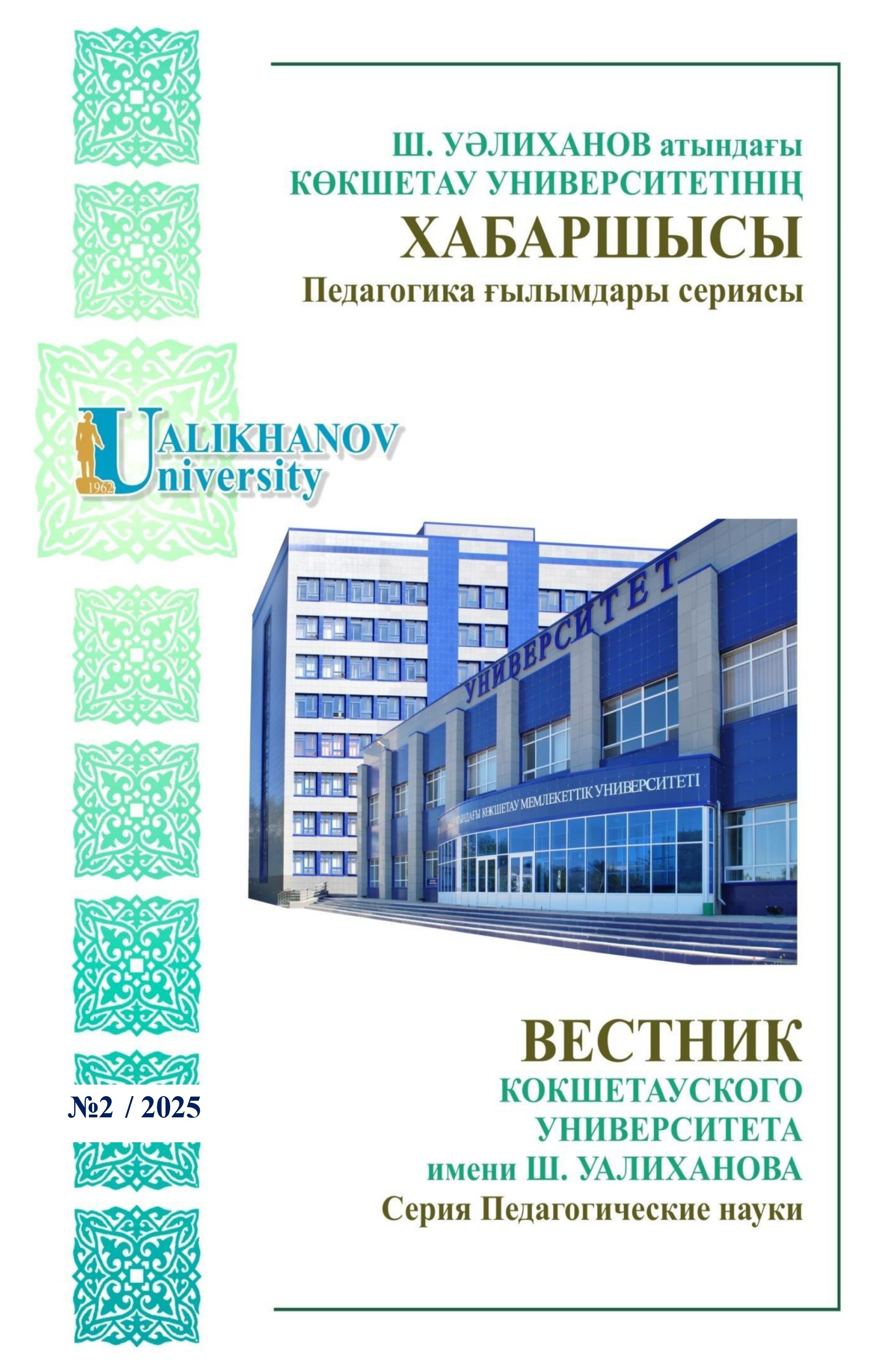Создание комплексной образовательной среды для овладения иностранными языками
DOI:
https://doi.org/10.59102/pedagogical/2025/iss2pp16-26Аннотация
Образовательное пространство включает в себя физические, виртуальные, социальные и интеллектуальные аспекты, которые способствуют обучению и передаче знаний. В этом исследовании рассматривается важность всесторонних образовательных условий для овладения языком, при этом особое внимание уделяется дизайну, ориентированному на учащихся, культурному погружению и технологической интеграции. Обзор литературы подчеркивает необходимость создания инклюзивных, адаптируемых условий обучения, способствующих сотрудничеству, критическому мышлению и практическому применению. Исследования показали, что комплексный образовательный подход, который объединяет социальные, когнитивные и технологические элементы, улучшает усвоение языка и способствует развитию глобального гражданства. Это исследование способствует внедрению гибких методов обучения, ориентированных на учащихся, для создания динамичной и эффективной среды обучения, которая связывает теоретические знания с практическим применением.
Ключевые слова:
целостный подход, овладение языком, личностно-ориентированное обучение, комплексная образовательная среда, культурное погружение, эмпирическое обучение, критическое мышлениеБиблиографические ссылки
References
Arasaratnam-Smith, L. A. (2020). Developing global graduates: essentials and possibilities. Research in Comparative and International Education, 15(1), 20-26. https://doi.org/10.1177/1745499920901945 (Original work published 2020)
Angraini, W., & Rozimela, Y. (2020, August). The implementation genre-based approach in teaching reading at senior high school. In Eighth International Conference on Languages and Arts (ICLA-2019) (pp. 108-112). Atlantis Press. https://doi.org/10.2991/assehr.k.200819.020
Barbiero, G., Berto, R., Venturella, A. et al. Bracing Biophilia: When biophilic design promotes pupil’s attentional performance, perceived restorativeness and affiliation with Nature. Environ Dev Sustain (2021). https://doi.org/10.1007/s10668-021-01903-1
Barrett, P., Davies, F., Zhang, Y., & Barrett, L. (2015). The impact of classroom design on pupils' learning: Final results of a holistic, multi-level analysis. Building and environment, 89, 118-133.
Charamba, E. Translanguaging as bona fide practice in a multilingual South African science classroom. Int Rev Educ 69, 31–50 (2023). https://doi.org/10.1007/s11159-023-09990-0
Chhatlani, C. K. (2023). Review the Role of Holistic Learning in Cultivating Global Citizenship Skills. EIKI Journal of Effective Teaching Methods, 1(2). https://doi.org/10.59652/jetm.v1i2.14
Dernova, M. (2015). Experiential learning theory as one of the foundations in effective adult learning practice worldwide. Порівняльна професійна педагогіка, (5 (2)), 52-57.
Dewey, J. (1938). Unity of science as a social problem (pp. 29-38). Chicago: University of Chicago Press.
Drobot, I.-A. (2022). Multilingualism and Awareness of Cultural Differences in Communication. IntechOpen. doi: 10.5772/intechopen.99178
Durak, G., & Cankaya, S. (2018). The Current State of The Art in Learning Spaces: A Systematic Review Study. International Journal of Emerging Technologies in Learning (iJET), 13(11), pp. 208–224. https://doi.org/10.3991/ijet.v13i11.9247
Giddings, L. R. (1991). Literature‐based reading instruction: An analysis. Reading Research and Instruction, 31(2), 18–30. https://doi.org/10.1080/19388079209558076
Gregoire, M. A., & Lupinetti, J. (2005). Supporting Diversity through the Arts. Kappa Delta Pi Record, 41(4), 159–163. https://doi.org/10.1080/00228958.2005.10532063
Hausfather, S. J. (1996). Vygotsky and schooling: Creating a social context for learning. Action in teacher education, 18(2), 1-10.
Hughey, Judy (2020) "Individual Personalized Learning," Educational Considerations: Vol. 46: No. 2. https://doi.org/10.4148/0146-9282.2237
Hull, P. V. (1984). Community Language Learning: Is It a Method? RELC Journal, 15(2), 15-25. https://doi.org/10.1177/003368828401500202 (Original work published 1984)
Kohler, M. (2020, August). An intercultural orientation to languages education: Expanding identity repertoires. In 1st International Conference on Language, Literature, and Arts Education (ICLLAE 2019) (pp. 1-9). Atlantis Press. https://doi.org/10.2991/assehr.k.200804.001
Larrotta, C. (2009). Final thoughts on community in adult ESL. New Directions for Adult & Continuing Education, 2009(121). https://doi.org/10.1002/ace.327
Ben Maad, M. R. (2014). Rethinking foreign language education in Tunisian preschools. Education Research International, 2014(1), 538437. https://doi.org/10.1155/2014/538437
Mahmoudi, S., Jafari, E., Nasrabadi, H. A. B., & Liaghatdar, M. J. (2012). Holistic Education: An Approach for 21 Century. In International Education Studies (Vol. 5, Issue 3). Canadian Center of Science and Education. https://doi.org/10.5539/ies.v5n3p178
Martínez-Ramos, S. A., Rodríguez-Reséndiz, J., Gutiérrez, A. F., Sevilla-Camacho, P. Y., & Mendiola-Santíbañez, J. D. (2021). The learning space as support to sustainable development: A revision of uses and design processes. Sustainability, 13(21), 11609.https://doi.org/10.3390/su132111609
McNutt, G. (1984). A holistic approach to language arts instruction in the resource room. Learning Disability Quarterly, 7(4), 315-320. https://doi.org/10.2307/1510230
Miller, G. J. (2018). Technologies in the classroom: Advancing English language acquisition. Kappa Delta Pi Record, 54(4), 176-181. https://doi.org/10.1080/00228958.2018.1515546
Pazyura, N. (2016). Influence of sociocultural context on language learning in foreign countries. Порівняльна професійна педагогіка, (6 (2)), 14-19. https://doi.org/10.1515/rpp-2016-0012
Perry, L., Stoner, K. R., Stoner, L., Wadsworth, D. P., Page, R., & Tarrant, M. A. (2013). The importance of global citizenship to higher education: The role of short-term study abroad. British Journal of Education, Society & Behavioural Science, 3(2), 184-194. https://doi.org/10.9734/bjesbs/2013/2910
Reinius, H., Korhonen, T., & Hakkarainen, K. (2021). The design of learning spaces matters: Perceived impact of the deskless school on learning and teaching. Learning Environments Research, 24(3), 339-354.https://doi.org/10.1007/s10984-020-09345-8
Taalas, P., Jalkanen, J., Bradley, L., & Thouësny, S. (Eds.). (2018). Future-proof CALL: language Learning as Exploration and Encounters–short Papers from EUROCALL 2018. Research-publishing. net. https://doi.org/10.14705/rpnet.2018.26.9782490057221
Tjernberg, C., & Mattson, E. H. (2014). Inclusion in practice: a matter of school culture. European Journal of Special Needs Education, 29(2), 247-256. https://doi.org/10.1080/08856257.2014.891336
Wallner, K. (2016). The effects of bilingualism on language development of children. http://digitalcommons.augustana.edu/csdstudent/5
Young, T. J., & Sachdev, I. (2011). Intercultural communicative competence: Exploring English language teachers’ beliefs and practices. Language awareness, 20(2), 81-98. https://doi.org/10.1080/09658416.2010.540328
Zhou, J. (2021, May). The Enlightenment of the Educational Concept of" Whole Language" on Early Reading Education. In 2021 2nd International Conference on Computers, Information Processing and Advanced Education (pp. 345-348).
Опубликован
Как цитировать
Выпуск
Раздел
Лицензия
Copyright (c) 2025 Вестник Кокшетауского университета имени Ш.Уалиханова. Серия Педагогические науки

Это произведение доступно по лицензии Creative Commons «Attribution-NonCommercial» («Атрибуция — Некоммерческое использование») 4.0 Всемирная.


